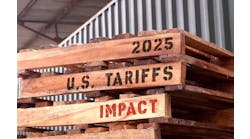What is a system integrator? And why were so many of them gathered in New Orleans in May? More than 400 of them, along with 50 exhibitors, gathered at the 2023 executive conference of the Control System Integrators Association (CSIA). It had been 20 years since the conference was last held in New Orleans in 2003.
“Coming back here was not easy,” explained Jose Rivera, CEO of the 30-year-old association. “We have this unwritten rule about not repeating cities.” Repetition is a rare aspect in system integrators’ lives. From custom machine builds to specialized expertise and experiences, all integrators are not shaped from the same cookie cutter. “I’ve been with CSIA for eight years,” said Rivera, “and I hear members say, ‘But we’re not a typical system integrator.’ In my head, I’m thinking, ‘Is there a typical system integrator?’”
Rivera suggested that, rather than trying to define what a typical system integrator is, the more important aspect is defining system-integration delivery. He offered six industrial examples.
• Independent system integrator: This comprises most CSIA members. They may have other parallel businesses, such as electrical construction.
• Engineering, procurement and construction: These engineering-services companies are contracted to undertake construction projects for complex, large-scale infrastructure.
• Machine builder: Food-and-beverage and packaging equipment builders, as well as builders of automated electronics test rigs that are integrated into the manufacturing process, are abundant.
• Automation equipment vendor: Suppliers often have their own integration capabilities—for example, Rockwell Automation acquired Maverick Technologies in 2016, making system integration a part of its core offerings.
• IT integration and consulting: As the importance of software and networking continues to grow in industrial manufacturing, mergers of IT and integrators expands. “IT/SI consulting is buying its way into the integration space,” Rivera noted. Accenture acquired Cimation in 2015 and Callisto Integration in 2020. Universal mCloud acquired Fulcrum Automation Technologies, which included AutoPro Automation Consultants, in 2019. And Cognizant acquired TQS Integration in 2021.
• End user: Internal engineering teams often deliver integration work. This was most common in the past, but over time this has been increasingly outsourced due mainly to financial market pressures. Some companies still retain the capability for either the full process or core parts of it. “The end user is a dwindling category,” explained Rivera.
System integration has become a key component in mergers and acquisitions (M&A) recently, with companies looking to expand offerings, with corporate engineers desiring more control over their own projects and with traditional integrators eyeing exit strategies. “We are in a hot M&A market,” said Rivera. “We have younger generations starting businesses, and we have older people looking to sell and retire.”





